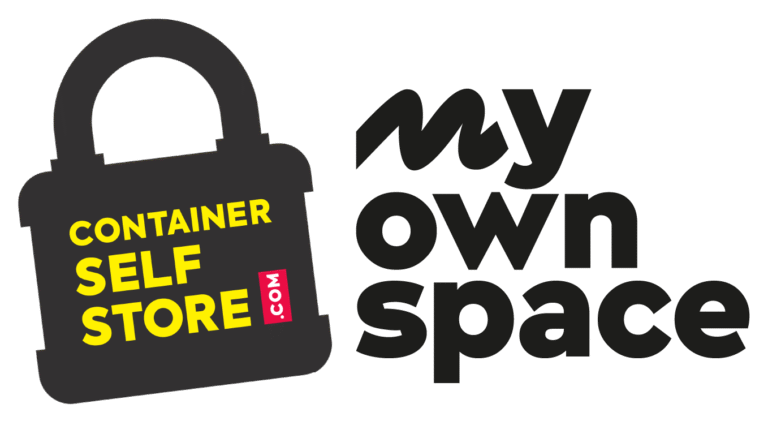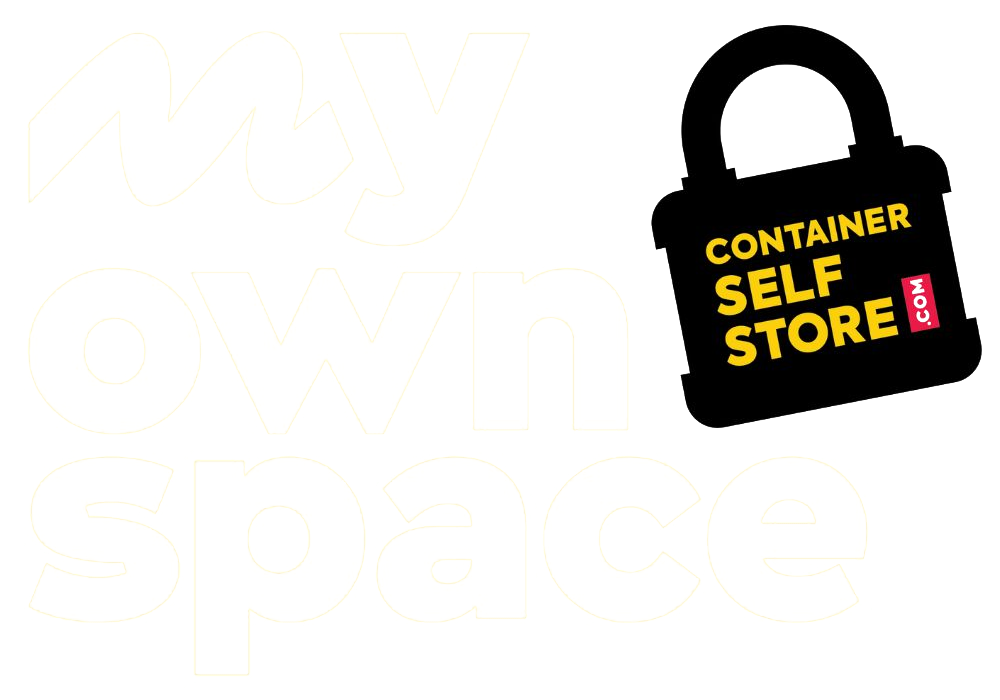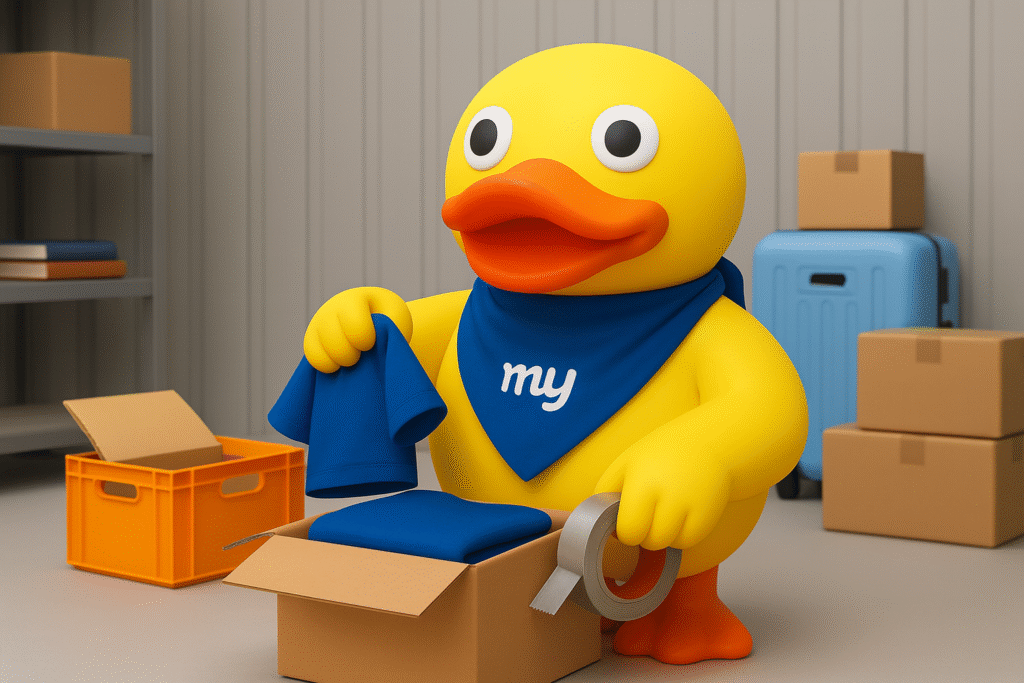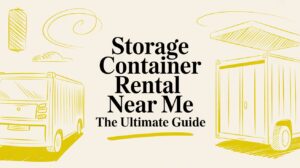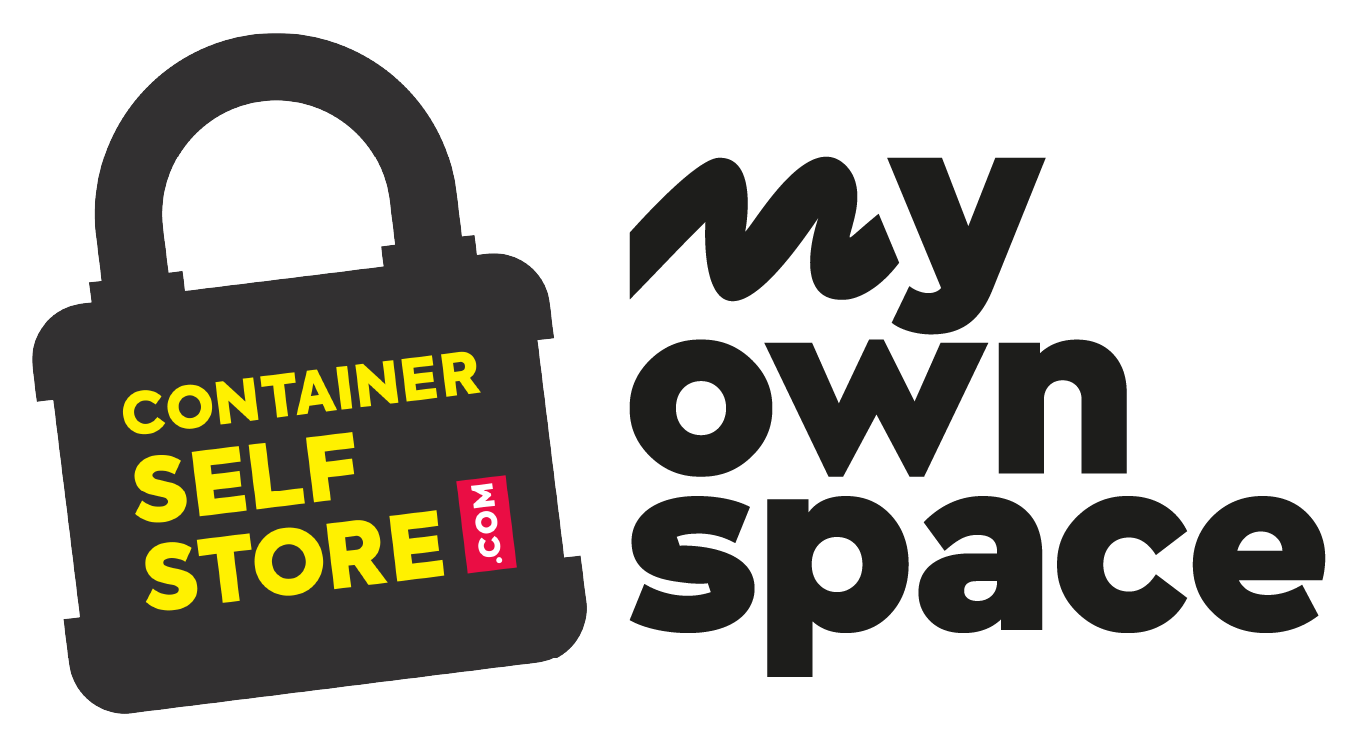As a student, you’ve got enough on your plate without worrying about what to do with all your stuff between terms. Self-storage is a simple, affordable answer to a classic uni problem: keeping everything from textbooks to your telly safe and sound without dragging it all back to your parents’ house. It just makes the end-of-term chaos a whole lot easier to handle.
Why Student Storage Is Your End-of-Term Lifesaver
Let’s be honest, the end of term is pure chaos. You’re drowning in final exams and dissertation deadlines, and on top of it all, you have to pack up and move out. Figuring out where everything is going to live for the next few months is a massive headache.
This is where self-storage for students comes in. Instead of stuffing your car to the brim (or begging a mate for a lift), you can just pop your belongings into a local storage unit near campus. It’s a hugely popular option here in the UK, especially over the summer when student accommodation empties out. Uni towns always see a massive spike in storage rentals as students realise it’s far easier than lugging everything home. You can actually see these patterns in action by checking out self-storage seasonal trends on Stora.co.
Common Student Storage Scenarios
Every student’s situation is a bit different, but there are a few classic moments when renting a storage unit just makes perfect sense.
- The Summer Break: Your parents will thank you for not filling their garage with your uni life. A small unit is perfect for holding your desk, chair, kitchen gear, and those textbooks you swear you’ll read over the holiday.
- A Semester Abroad: If you’re off on a bigger adventure for a few months, secure storage is a no-brainer. It keeps your valuable kit—like your computer, TV, and winter wardrobe—safe and sound until you get back.
- Gaps Between Tenancies: It’s a common nightmare: your old lease ends a few weeks before the new one begins. A flexible, short-term storage solution turns a logistical disaster into a minor inconvenience.
The best part? Once your stuff is safely locked away, you can actually enjoy your break. It offers real peace of mind, letting you focus on relaxing or travelling instead of stressing about your possessions.
Ultimately, student storage is all about making your life simpler. It saves you time, money on fuel, and the back-breaking effort of moving everything multiple times. By keeping your things close to uni, you can hit the ground running and settle back in quickly when the new term rolls around.
Choosing the Right Storage Unit Without Overpaying
Picking the wrong storage unit is like buying shoes that don’t fit – it’s a painful and surprisingly expensive mistake. The last thing you want is to book a huge unit only to find all your stuff huddled in one corner, with empty space mocking your bank balance.
So, where do you start? Before you even think about sizes, do a quick mental inventory. Are we talking about a few boxes of books, your laptop, and some winter coats? Or is it a full-blown room clear-out, complete with a desk, gaming chair, and a small library’s worth of textbooks? Knowing what you’ve got takes the guesswork out of the equation.
From Lockers to Rooms: Sizing Up Your Needs
For a lot of students, a simple storage locker is all it takes. These are absolutely perfect for stashing several boxes, a suitcase, and maybe a guitar. They’re the most budget-friendly option and a lifesaver if you’re just storing the essentials over a short break.
If you’ve accumulated a bit more—say, a bicycle, a mini-fridge, or your entire wardrobe—then a 25 sq ft unit is a very popular choice. Think of it as being roughly the size of a small garden shed. It can comfortably hold the entire contents of a standard student room, desk and chair included.
To help you figure it out, this flowchart walks you through the common reasons students need storage and what that means for your planning.
The real takeaway here is that why you need storage often tells you what kind of storage you need and for how long, which makes choosing a whole lot simpler.
Here’s a quick reference to help you visualise the different sizes and what they can realistically hold.
Student Storage Unit Size Guide
| Unit Size (sq ft) | What It Typically Holds | Ideal For |
|---|---|---|
| 10-15 (Locker) | Several boxes, a suitcase, a couple of bags, small electronics | Storing essentials over the summer break or a short trip. |
| 25 | Contents of a small student room: single bed, desk, chair, mini-fridge, boxes | The most common choice for students clearing out their uni room for the summer. |
| 35-50 | Contents of a small studio flat: small sofa, double bed, kitchen items, bike | Sharing with a housemate or storing belongings during a placement year. |
This should give you a solid starting point, but remember you can always ask the facility staff for their opinion – they’ve seen it all!
Indoor Units vs. Drive-Up Containers
Beyond just the size, you’ll need to decide between two main types of self storage for students: an indoor unit or an outdoor drive-up container. They both have their pros and cons, and the right one for you really depends on what you’re storing.
Indoor storage rooms are located inside a larger building, a bit like a hotel for your stuff. These are fantastic for more delicate items that don’t appreciate big temperature swings – think electronics, wooden furniture, or important documents. The only potential snag is you might have a bit of a trek down corridors from the loading bay.
On the other hand, drive-up containers offer pure, unadulterated convenience. You can literally park your car or van right at the door. This makes loading and unloading heavy or awkward things like a mattress or a desk an absolute breeze. Our containers at Container Self Store are also fully ventilated to stop moisture from building up, keeping your belongings safe and dry.
Pro Tip: When in doubt, it’s almost always better to go for a unit that’s slightly bigger than you think you need. That little bit of extra space makes it so much easier to pack, organise, and get to your things later. Plus, it allows air to circulate, which is always a good thing.
Ultimately, your choice comes down to what you’re storing and how you plan to move it. For students in Nottingham and Northampton looking for a straightforward, secure, and ridiculously easy-to-access solution, our drive-up containers are hard to beat.
Smart Packing and Organisation That Saves Space
Right, you’ve picked your unit. Now comes the packing. And trust me, this is more than just chucking things into boxes. A bit of smart packing now is the secret to protecting your stuff and, crucially, getting the most out of every square inch you’re paying for. Good organisation at this stage will save you a world of headaches later on.

This doesn’t have to be an expensive job, either. Before you splash out on fancy packing supplies, have a word with the staff at your local supermarket. They’re often more than happy to give away their old delivery boxes for free. You can also get creative with what you already have – use towels, bedding, and even socks to wrap fragile things like mugs and plates. It saves money and space.
Low-Cost, High-Impact Packing Strategies
Packing well is a skill, but it’s one you can pick up fast with a few tried-and-tested tricks. The main goal is to create solid, stackable boxes that keep your gear safe and are easy to identify when you come back.
- Book Smarts: Always lay heavy books flat in the bottom of small, sturdy boxes. This stops their spines from getting damaged and prevents the boxes from becoming impossibly heavy. Chuck a few lighter items on top to even out the weight.
- Tech Protection: If you’ve still got the original boxes for your electronics, use them. If not, don’t panic. Wrap laptops and monitors in duvets or thick jumpers. Just make sure you place them upright, never flat, and in a spot where they won’t have heavy things piled on top.
- Space-Saving Secret: Vacuum-sealed bags are an absolute game-changer for bulky items like duvets, pillows, and winter coats. They can shrink the volume of these items by up to 75%, freeing up a surprising amount of room.
The need for self storage for students is part of a much bigger picture. The UK self storage industry is booming, with a 7.2% increase in total space over the last year, now hitting a massive 64.3 million square feet. This growth is partly fuelled by students just like you needing flexible solutions between terms. You can get the full picture by checking out the latest info on the growth of the UK self storage market on cushmanwakefield.com.
The Simple Labelling System That Actually Works
A decent labelling system is what turns a chaotic pile of cardboard into an organised library of your life. Future you will be seriously grateful when you’re hunting for that one specific textbook or your favourite coffee mug.
Top Tip: Don’t just label the top of the box. Grab a thick marker and write on at least two sides. This way, you’ll always be able to see what’s what, no matter how you’ve stacked them.
Here’s a straightforward system that does the job perfectly:
- Assign a Room or Category: Give each box a general label, like “Kitchen,” “Desk Stuff,” “Bedding,” or “Books.”
- List the Key Contents: Underneath the main category, quickly jot down three or four of the most important items inside. For instance, a “Kitchen” box might have “Kettle, Toaster, Mugs” written on the side.
- Add a Fragile Warning: For any boxes with breakables, scrawl “FRAGILE” in big letters on all sides. You can’t miss it.
This simple approach makes moving back in so much easier. You can quickly grab the boxes you need right away—like bedding and kitchen essentials—without having to tear open every single thing you own. It’s a tiny bit of effort now for a genuinely smooth, stress-free move-in day later.
Nailing Down a Good Price and Finding Student Discounts
Let’s be honest, the student loan has to stretch a long way. When you’re trying to cover books, food, and the odd night out, the last thing you need is a hefty storage bill. The good news is that finding a unit doesn’t have to drain your account, but you do need to be savvy about what you’re actually paying for.
The headline price you see online often isn’t the final figure. Always ask about the extras. On top of the monthly rent, you might be looking at a security deposit, and almost every facility will require you to have insurance for your stuff. This is non-negotiable – it’s for your own protection – but it’s a cost you need to factor in from day one.
Spotting Genuine Student Savings
Lots of storage companies want students’ business, so keep your eyes peeled for special offers, especially as term starts to wind down. A proper student discount can make a huge difference, often taking a chunk off your first month’s payment or even the entire summer rental. Just make sure you have your student ID handy to prove you’re eligible.
Beyond the obvious discounts, there are a few other tricks to keep costs down:
- Don’t leave it late: Booking a unit in the final week of term is a classic mistake. Units near university campuses get booked up quickly, and prices can start to climb as demand soars. Securing your spot a few weeks early usually means you’ll get a better rate.
- Ask about paying upfront: If you know you’ll need storage for the whole summer, see if there’s a discount for paying for the three months in one go. It’s not always offered, but some places will knock a little off the total, and every penny counts.
- Bring a mate: Check if the company has a referral scheme. If you get a friend to book a unit as well, you might both get a discount or a bit of credit on your account.
The single best way for students to save money on storage? Team up. Sharing a slightly larger unit with a couple of trusted housemates is almost always cheaper than everyone getting their own small locker.
The Power of Sharing
Think about it. One 35-50 sq ft unit could easily swallow up the essential bits and bobs from two or even three students. Split that monthly cost, and suddenly it looks a lot more friendly on your bank statement. This doesn’t just save you cash; it can also make moving day easier if you all coordinate and do one or two trips together.
The key is to have a clear plan with your friends. Figure out who’s in charge of making the payments and how you’ll all get access when you need it. A quick chat beforehand can prevent any awkward mix-ups later. By being smart and looking at all the angles, you can find a secure, affordable spot for your things that won’t blow your student budget.
Getting Your Stuff To and From Your Storage Unit
Okay, so you’ve found the perfect unit. But how on earth are you going to get everything there without descending into chaos? The logistics of the move itself can feel like the biggest hurdle. With a little bit of planning, though, you can dodge the classic end-of-term scramble and make the whole process a breeze.
First things first, figure out how you’re actually going to transport your belongings. Don’t put this off until the last minute—options dry up fast (and get more expensive) when every other student is trying to move out on the same weekend. What you choose will depend on how much stuff you have, your budget, and frankly, how much heavy lifting you’re prepared to do.
Sorting Out Your Transport
If you only have a few boxes and bags, your cheapest and easiest option is often to call in a favour from a friend with a car. Just be a good mate and offer them petrol money and maybe a pizza as thanks! This is ideal for smaller loads and gives you the most flexibility with timing.
Got bigger items like a mattress, a desk, or a bike? It’s probably time to call in the professionals. A local ‘man with a van’ service is a fantastic middle-ground. They’re much more affordable than a full-on removals company and can be a lifesaver, often helping you load and unload the awkward, heavy stuff.
For a completely hands-off experience, you could hire a small moving van. While it’s the priciest option, it’s the best bet if you’re sharing a larger unit with housemates and want to get everything moved in one go.
The good news for students is the sheer number of facilities to choose from. The UK boasts the largest self storage market in Europe, with over 5,233 sites. Many are located right near university campuses, which makes getting to them much simpler. You can dive deeper into the European self storage market at Stortrack.com.
A Simple Timeline to Keep You Sane
Timing is everything. That short window between your last exam and your moving-out day is peak season for storage companies, so booking well in advance is essential if you don’t want to be left stranded.
Here’s a rough timeline that’ll keep you on track:
- 4 Weeks Before Moving Out: Start getting quotes and book your unit. You’ll get the best pick of sizes and might even snag an early-bird discount.
- 3 Weeks Before Moving Out: Lock in your transport. Whether that’s confirming with your friend or booking a van, get it in the diary. Now is also the time to start gathering boxes and packing tape.
- 1-2 Weeks Before Moving Out: Begin packing things you won’t need. Think textbooks, winter clothes, and any kitchen gear you can live without for a week. Label every single box as you pack it.
- The Day Before the Move: Pack your absolute essentials last in a clearly marked bag—bedding, toiletries, phone charger, kettle. This should be the last thing you load into the van and the first thing you grab when you get to your new place.
If you’re studying at the University of Nottingham or the University of Northampton, picking a facility like Container Self Store is a no-brainer. Our sites are just a short drive away, which means less time on the road and lower fuel costs. Our easy, drive-up container access transforms what could be a really stressful day into a quick, simple job.
A Few More Things You Might Be Wondering About
Even with the best plan, you probably still have a couple of questions rattling around. That’s completely normal. To make sure you’re totally confident, I’ve put together answers to the most common queries we get from students. Think of this as the final check to clear up any last-minute uncertainties.
Getting the details right on security, insurance, and access is what separates a stressful move from a smooth one.
What’s the Deal with Security? What Should I Actually Look For?
When you’re handing over your stuff, security is everything. It’s not enough to just have a padlock on the door. You need to look for a place that has layers of protection.
Here’s a quick checklist of non-negotiables:
- Proper CCTV: The entire site should have cameras running 24/7, covering gates, driveways, and all the main areas.
- Controlled Access: You should get your own unique code or key fob to get through the main gate. This stops anyone who isn’t a customer from wandering in.
- A Solid Perimeter Fence: This is the first line of defence. It needs to be sturdy and secure the whole compound.
- Good Lighting: A well-lit facility is a must, especially if you think you might need to pop over to your unit after dark.
All these things work together to make sure your laptop, textbooks, and everything else are genuinely safe while you’re away.
Do I Really Need Insurance?
In a word, yes. Most storage places will require it, and honestly, it’s a smart move. Think of it as your safety net. While a good facility is incredibly secure, insurance is there to protect you from the totally unexpected, like a fire or flood.
The easiest route is usually to take out the specialised insurance offered by the storage company itself. It’s typically a small extra monthly cost and is designed for exactly this purpose. You could try checking if your parents’ home insurance policy covers items in storage, but that’s pretty rare. Your best bet is a dedicated self storage policy.
Having the right insurance means you’re not just storing your belongings—you’re properly protecting their value. It’s a small price to pay for complete peace of mind.
Can I Get to My Stuff Whenever I Want?
This is a huge one, and it really varies from place to place, so always ask before signing anything. Some of the more traditional indoor storage facilities might only be open during standard office hours, which can be a real pain with a student timetable.
On the other hand, a lot of modern sites, especially those with drive-up containers, now offer 24/7 access. This is a game-changer for students. It means you can grab something early in the morning before a road trip or drop off a final box late at night after a library session. If that kind of flexibility sounds good, make 24-hour access a top priority.
Is There Anything I’m Not Allowed to Store?
Absolutely. Every single storage facility has a strict list of prohibited items, and it’s all for safety and hygiene. Trying to store something on this list isn’t just a bad idea—it’s dangerous and will almost certainly break your rental agreement.
Here’s a rundown of the usual suspects:
- Flammable or Explosive Materials: This means things like petrol, paint, gas canisters, fireworks, and even some types of aerosol cans.
- Perishable Food: Anything that can go off, rot, or attract pests is a definite no-go.
- Living Things: This one’s a bit obvious, but you can’t store pets, plants, or any other living thing.
- Illegal or Hazardous Items: Again, pretty straightforward. Anything that’s illegal, toxic, or hazardous is banned.
Before you even think about packing, ask the company for their specific list of restricted items. It’ll save you a major headache on move-in day.
Ready to make your end-of-term move simple and secure? At Container Self Store, we offer straightforward, accessible, and affordable self storage for students in Nottingham and Northampton. Get a free, no-obligation quote online in minutes and see how easy it can be. Find your perfect student storage solution today at Container Self Store.
